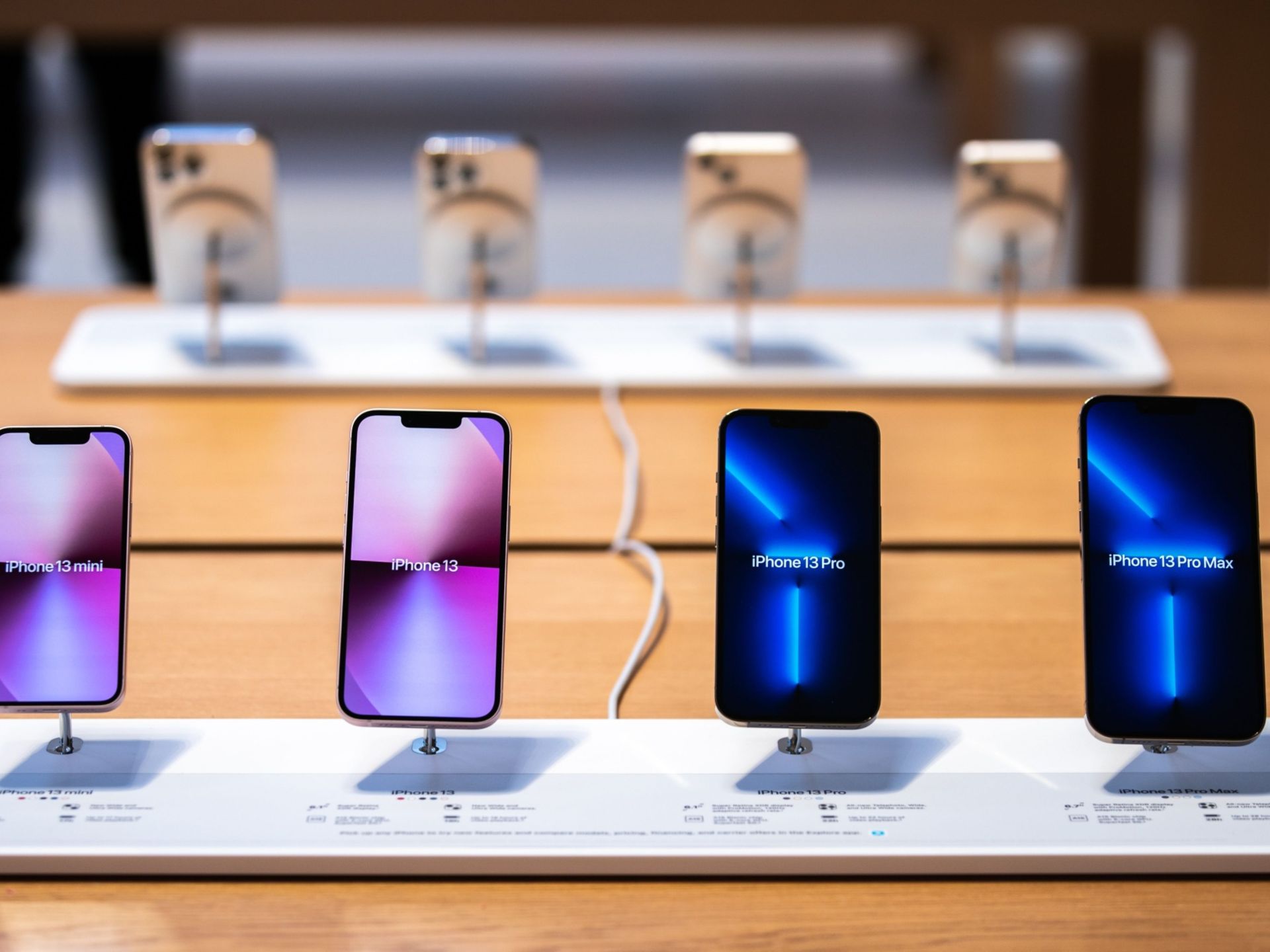Tehran, Iran – At least one person has been arrested and more are wanted after a company scammed people out of tens of millions of dollars, promising cheap iPhones after a ban on them in Iran.
A division of Iranian law enforcement tasked with economic crimes said on Friday that the main suspect in the case of a firm called Kourosh Company had fled the country, but a “main member” of the company was arrested and two more are wanted.
It said that, in coordination with the judiciary, “all the assets of the main suspect of the case were confiscated” without saying how much the assets were worth.
Starting last year, Iran banned official registration of all new iPhone models made by United States tech giant Apple. The ban was extended this year, affecting all iPhone 15 models.
All phones imported into Iran must be registered upon entry – even those belonging to tourists – or else they are considered contraband and only have network coverage for one month on any local SIM card.
All new iPhone 14 and 15 handsets are being smuggled into Iran and can readily be found in shops in Tehran and across the country, but the ban has caused chaos.
People have found temporary workarounds to circumvent the ban with spoofing methods, but the phones could still get disconnected after a while.
A chaotic market
The ban created a black market for newer phones at exorbitant prices and shot the cost of buying an iPhone 13 – the last officially available phone from Apple – to levels several times higher than international markets.
An Iran-registered base-level iPhone 13 Pro, a phone that Apple has not sold since newer handsets came out, was changing hands at Tehran shops on Sunday at an eyewatering 1.3 billion rials – about $2,300 at the current open market rate.
Repacked and refurbished versions of the same phone can be bought for approximately 650 million rials ($1,150). The phone can be purchased at $800 or less in markets outside Iran.
Part of the markup in Iran is due to considerable registration fees, which go to the government. In addition, large manufacturers like Apple do not have official vendors in Iran because of the country’s isolation from global markets due to harsh US sanctions.
Local vendors change their prices regularly as well, citing shifting foreign currency rates, the overall situation making many phones unaffordable for most Iranians.
Authorities have claimed that iPhones must be prohibited because importing them would expend precious foreign currency at a time when Iran needs it most, but they have not banned any other non-US handsets.
Top Samsung flagships were registered and available in Iran at the start of February less than 48 hours after the international launch.
Promise of quick cash
This setting provides scammers like Kourosh Company with a golden opportunity to rob unsuspecting customers or those looking to make a quick profit in Iran’s ailing economy, marked by consistently high inflation.
The company, which initially billed itself as Iran’s “largest phone repair company”, told customers it would sell them iPhones at a hugely discounted price of 200 million rials ($360) or less, on the condition that it would deliver the phones within weeks.
It is unclear if any cheap phones were delivered, but the man running the operation, identified by the state-linked Tasnim news website on Saturday as 27-year-old Amirhossein Sharifian, has reportedly fled to neighbouring Turkey.
The company reportedly attracted some 20 trillion rials ($35 million) within months.
It remains unclear how it managed to grow so fast, especially considering that Tasnim also said Sharifian had dodged mandatory military conscription, which should have made him unable to register a company in the first place.
In large part, Kourosh Company was aided by a massive public and online advertisement campaign it launched using a slew of Iranian celebrities, from top footballers to actors and influencers.
National football team goalkeeper Alireza Beyranvand and actor Akbar Abdi were among dozens of Iranian celebrities who recorded personalised messages in Kourosh Company offices to heartily encourage people to snatch a once-in-a-lifetime opportunity.
Since the company went down earlier this week, most of those celebrities have remained silent, some have apologised, and others have defiantly insisted that it was not their responsibility that people made this choice.
“Unfortunately, some renowned and recognised figures advertised for this company during its operation, whose charges will also be followed up on,” Hossein Rahimi, a senior police official, was quoted as saying by state-linked media on Friday.
He did not elaborate on any further steps or name suspects but said those who have lost money can open a case with the police.

Alex Mitchell is your go-to expert for all things mobile. With a passion for the latest smartphones, apps, and mobile innovations, Alex provides in-depth reviews, insightful analyses, and breaking news about the ever-evolving world of mobile technology. Stay connected with Alex to navigate the fast-paced realm of mobile devices.


